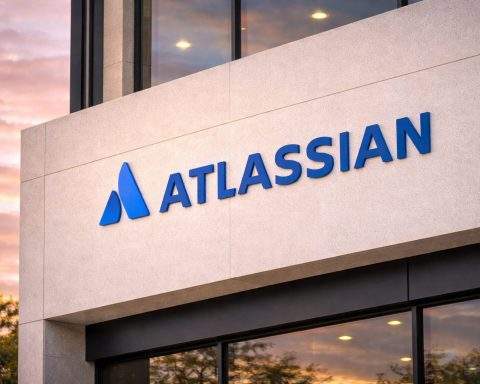- On June 30, 2025, X hires Nikita Bier, founder of tbh and Gas, as Head of Product to revitalize the main feed and engagement features, after advising Musk’s xAI since late 2024.
- U.S. District Judge Julien Neals denied Apple’s motion to dismiss the DOJ antitrust case filed in 2024, allowing the suit alleging an App Store and ecosystem monopoly to proceed.
- Apple is reportedly considering outsourcing Siri to Anthropic’s Claude or OpenAI’s GPT models on Apple’s cloud, with internal tests showing Anthropic’s models performing better and a fully Apple-built “LLM Siri” planned by around 2026, though no decision has been made.
- Meta announces Meta Superintelligence Labs (MSL) on June 30, 2025, co-led by Alexandr Wang of Scale AI and Nat Friedman, aiming to build personal superintelligence and centralize AI research after Meta’s roughly $14 billion investment in Scale AI.
- The DOJ dismantled a North Korean operation that used laptop farms and impersonated freelancers to land remote jobs at over 100 U.S. companies, seizing 137 computers across 21 locations in 14 states and recovering about $5 million in illicit earnings; Zhenxing “Danny” Wang was arrested and eight others indicted.
- Spotify marks the 10th anniversary of Discover Weekly by surpassing 100 billion tracks streamed, adding up to five genre buttons for Premium users to steer recommendations and introducing Sponsored ads for free users with a refreshed visual design.
- Tandem Health raises $50 million in Series A funding led by Kinnevik to build an AI clinician assistant that transcribes encounters and auto-generates structured notes in real time, with deployment via Accurx to over 200,000 NHS staff.
- Cato Networks closes a $359 million Series G round, valuing the company at $4.8 billion and bringing total funding to over $1 billion, while serving more than 3,500 enterprise customers with a cloud-based SASE platform and AI-enabled threat detection.
- The DOJ antitrust case against Apple could, if regulators prevail, force changes to App Store policies and potentially permit alternative app distribution on iPhones.
- Analysts note the day reflects broader AI and cybersecurity momentum, with earlier 2025 rounds including Cyera’s $540 million and NinjaOne’s $500 million, signaling sustained investor appetite for security and AI-enabled tech.
Monday, June 30, 2025 – Today’s tech headlines span social media shake-ups, big tech legal battles, AI advancements, cybersecurity crackdowns, and more. Below we delve into all the major internet and technology news stories of the day, with context and expert insights for each development.
X (Twitter) Hires Viral-App Veteran Nikita Bier as Head of Product
Elon Musk’s social platform X (formerly Twitter) has brought on Nikita Bier – the entrepreneur behind viral teen apps tbh and Gas – as its new Head of Product economictimes.indiatimes.com economictimes.indiatimes.com. Bier announced his role by declaring “X is the most important social network in the world. It’s where internet culture originates and where the world’s most influential people convene.” economictimes.indiatimes.com With over a decade of experience building highly engaging social products, Bier is expected to revitalize X’s core features and user experience. According to reports, he will focus on enhancing the main feed and rolling out new engagement-driven features to “revive the platform’s momentum” under Musk’s ownership economictimes.indiatimes.com.
This high-profile hire comes at a critical time for X, which has undergone multiple strategic shifts – from subscription offerings to creator monetization tools – in an effort to reignite growth. Bier’s track record in cultivating viral user engagement could help X better compete with rivals and keep users active. Notably, Bier had already been advising Musk’s AI venture, xAI, since late 2024, indicating a level of trust and alignment with Musk’s vision economictimes.indiatimes.com. His appointment signals X’s intent to double down on product innovation and user retention as the platform seeks to solidify its role in shaping online culture.
U.S. Judge Lets DOJ’s Antitrust Case Against Apple Move Forward
A major development in tech antitrust: Apple must face a U.S. Department of Justice lawsuit alleging the company illegally dominates the smartphone market. On June 30, U.S. District Judge Julien Neals denied Apple’s motion to dismiss the DOJ’s antitrust case, which was originally filed in 2024techmeme.com macrumors.com. The DOJ accuses Apple of maintaining a monopoly through practices around its App Store and ecosystem, thereby “unlawfully dominating the U.S. smartphone market,” according to the complainttechmeme.com.
Apple had argued that the government’s case didn’t demonstrate anti-competitive conduct or consumer harm and sought to have it thrown out macrumors.com. However, the judge’s ruling means the lawsuit will proceed to be litigated on its merits. Antitrust experts note that it’s not unusual for such cases to survive early dismissal, as courts often allow the parties to present evidence. Apple’s legal battle with the DOJ could last years before any outcome, but this initial win for regulators indicates the court found the DOJ’s allegations plausible enough to warrant a full hearing macrumors.com.
This lawsuit is one of the most significant government challenges Apple has faced in decades, paralleling other global scrutiny over its App Store policies and control over iOS. It underscores mounting pressure on tech giants over competition issues. If the DOJ eventually prevails, it could lead to changes in how Apple operates its App Store or even require permitting alternative app distribution on iPhones. For now, Apple will have to prepare to defend its business model in court, as the legal spotlight intensifies on Big Tech’s market powertechmeme.com.
Apple Explores Using Anthropic or OpenAI AI Models to Power Siri
Apple is reportedly considering a bold shift in how it powers Siri, its virtual assistant, by tapping advanced AI models from outside firms. According to a Bloomberg scoop by Mark Gurman, Apple has approached Anthropic and OpenAI to develop customized large language models (LLMs) that could run on Apple’s own cloud infrastructure to greatly upgrade Siri’s capabilities 9to5mac.com 9to5mac.com. Internal testing by Apple’s Siri team found that Anthropic’s AI technology performed better for Siri’s needs than Apple’s existing in-house models, prompting serious discussions about a third-party solution 9to5mac.com.
This exploration is happening under the radar even as Apple continues an internal project (dubbed “LLM Siri”) aimed at a fully Apple-built AI by around 2026 9to5mac.com. The external negotiations, however, indicate Apple might not wait that long. Mike Rockwell and Craig Federighi are leading the Siri revamp initiative after CEO Tim Cook reportedly lost confidence in the previous approach, and they have engaged Anthropic’s team – including hosting Anthropic executives in talks led by Apple’s AI strategy chief Adrian Perica 9to5mac.com.
One sticking point is cost: Anthropic is said to be demanding a multi-billion-dollar annual fee for its AI services, which Apple has balked at 9to5mac.com. If a deal can’t be reached, Apple might turn to OpenAI or another provider. The mere consideration of outsourcing Siri’s “brain” has caused internal turbulence at Apple – Gurman notes that some of Apple’s AI engineers feel demoralized, fearing their work will be sidelined, and Apple has had to fend off talent poaching by rivals with far higher pay (top AI researchers at firms like Meta and OpenAI command compensation up to $40 million a year) 9to5mac.com 9to5mac.com.
Apple’s possible pivot to third-party AI underscores how the company is racing to catch up in generative AI. By leveraging cutting-edge models like Anthropic’s Claude or OpenAI’s GPT on its own secure servers, Apple could rapidly boost Siri’s intelligence while maintaining privacy control 9to5mac.com 9to5mac.com. Industry observers say Apple’s AI strategy is at a crossroads: it can either invest heavily to improve Siri internally, or partner with AI specialists to deliver a smarter Siri sooner. No final decision has been made yet 9to5mac.com, but the outcome will shape how competitive Siri remains against the likes of Alexa, Google Assistant, and emerging AI chatbots.
Meta Forms ‘Superintelligence’ Lab, Hires Top AI Talent (Including OpenAI Alumni)
Facebook parent Meta announced a sweeping reorganization of its AI efforts, creating a new division called Meta Superintelligence Labs (MSL) with the ambitious goal of building “personal superintelligence for everyone.” CEO Mark Zuckerberg unveiled MSL in an internal memo on June 30, framing it as a way to accelerate progress toward AI systems as capable as humans businessinsider.com businessinsider.com. The new lab will consolidate Meta’s core AI research teams and be co-led by two high-profile hires: Alexandr Wang, the 27-year-old founder of data startup Scale AI, and Nat Friedman, former CEO of GitHub and a notable AI investor businessinsider.com.
Wang joined Meta this month after Meta invested a reported $14 billion in Scale AI (signaling the importance of his data-labeling expertise), and Friedman will partner with him to drive MSL’s research and products businessinsider.com. Zuckerberg’s memo – first reported by Bloomberg – said “as the pace of AI progress accelerates, developing superintelligence is coming into sight”, positioning Meta to lead this new era businessinsider.com. The formation of MSL comes amid Meta’s race against OpenAI and Google in the AI arena; Zuckerberg has made AI his top priority for 2025, pouring resources into custom silicon chips, expanded data centers, and aggressive recruitment of AI researchers businessinsider.com.
Indeed, Meta has been on a hiring spree, poaching talent from rival labs including OpenAItechmeme.com. Just recently, Meta brought on several researchers who formerly worked on OpenAI’s GPT modelstechmeme.com, and the Fortune reports that Zuckerberg “poached” key OpenAI scientists as part of this “superintelligence” push. The new Superintelligence Labs group effectively centralizes Meta’s AI research (including the FAIR team and other units) to focus on next-generation AI models businessinsider.com businessinsider.com.
Under MSL, Meta plans to develop AI that is not only powerful but deeply integrated into personal uses – think AI assistants that seamlessly handle tasks in Meta’s social and messaging platforms. As part of this strategy, Meta has been investing and even considering acquisitions: the company has reportedly held talks to acquire AI startups like Perplexity.ai and Runway, and is close to buying Play.ai, a voice technology firm businessinsider.com. All these moves signal Meta’s determination to stay at the cutting edge of AI. With Nat Friedman and Alexandr Wang at the helm, Meta Superintelligence Labs has a blend of entrepreneurial and research leadership aimed at vaulting Meta ahead in the AI arms race.
U.S. Cracks Down on North Korean “Remote Worker” Scam That Infiltrated Tech Companies
In a sweeping law enforcement action, the U.S. government dismantled a major North Korean operation that had covertly embedded North Korean IT contractors inside American tech companies for years to fund Pyongyang’s regime. The Department of Justice (DOJ) announced multiple indictments and arrests aimed at this scheme, which saw North Korean agents impersonate foreign freelancers to land remote jobs at U.S. firms techcrunch.com techcrunch.com. According to the DOJ, from 2021 to 2024 the conspirators fraudulently obtained employment at over 100 companies by impersonating at least 80 different people, funneling millions in earnings back to North Korea’s nuclear weapons program techcrunch.com techcrunch.com.
One American, a New Jersey man named Zhenxing “Danny” Wang, was arrested and charged with running a front operation that connected North Korean tech workers with U.S. job opportunities techcrunch.com. He allegedly helped sneak these operatives into companies by falsifying their identities and work histories. Eight other individuals – six Chinese and two from Taiwan – were also indicted as facilitators, facing charges including wire fraud, money laundering, identity theft, and sanctions evasion techcrunch.com.
The scheme was elaborate. The DOJ says the North Koreans set up “laptop farms” on U.S. soil – essentially banks of computers and networking gear – to make it appear the remote workers were based in America techcrunch.com. They even used hardware KVM switches (keyboard-video-mouse devices) so one operative could control multiple distant PCs, further masking their true location techcrunch.com. Fake shell companies were created in the U.S. to pretend these North Korean programmers were employed by legitimate local businesses, and to collect their pay which was then laundered abroad techcrunch.com.
Beyond stealing salaries, the North Korean contractors also stole sensitive data and source code from some of their workplaces. In one case, they allegedly exfiltrated proprietary data from a California AI-powered defense technology firm where a North Korean had gained employment techcrunch.com. U.S. authorities carried out coordinated raids in June, seizing 137 computers from 21 different locations across 14 states that were tied to the so-called “laptop farms” techcrunch.com. They also seized dozens of bank accounts and web domains used to funnel roughly $5 million in illegal earnings to North Korea techcrunch.com techcrunch.com.
This crackdown shines a light on a lesser-known dimension of North Korean cyber-operations: posing as IT freelancers to infiltrate Western companies. U.S. officials warn that thousands of North Korean tech workers continue to operate abroad generating revenue for Kim Jong-un’s regime. The case is a wake-up call for tech companies to tighten their vetting of remote hires and watch out for red flags (such as unusual requests to use third-party equipment or proxy networks). It also underscores how far North Korea will go – including exploiting the remote work boom – to fund its illicit programs. As one U.S. attorney noted, “North Korean cyber operatives have been trained to blend into the global digital workforce” techcrunch.com, and the U.S. is now actively working to unmask them.
Spotify Marks 10 Years of Discover Weekly with Personalization Upgrades and Ads
Music streaming leader Spotify celebrated the 10th anniversary of its Discover Weekly playlist (first launched in 2015) by rolling out a significant refresh to the beloved feature. The company announced that Discover Weekly – an algorithm-driven playlist of new music recommendations delivered every Monday – has surpassed 100 billion tracks streamed over its lifetime theverge.com techcrunch.com. To keep listeners engaged for the next decade, Spotify is introducing new user controls that let Premium subscribers customize the playlist by genre techcrunch.com techcrunch.com. Users can tap up to five genre buttons (e.g. pop, R&B, K-pop, etc.) to nudge the recommendation algorithm toward those styles, thereby tailoring their weekly mix to their mood or evolving tastes newsroom.spotify.com techcrunch.com. This marks the first time listeners have had direct influence over Discover Weekly’s curation, a response to some complaints that the playlist had grown stale or repetitive for certain users theverge.com theverge.com.
Alongside the personalization features – which are initially available to paying subscribers – Spotify gave Discover Weekly a visual makeover with vibrant new cover art and design, emphasizing that it’s an ever-evolving discovery experience newsroom.spotify.com. The company says these updates are aimed at keeping the experience fresh and fun, noting that 77% of Discover Weekly plays come from emerging artists, underscoring the playlist’s role in music discovery techcrunch.com.
Meanwhile, Spotify is also tweaking the business side of personalized playlists. For users on the free tier, Spotify has increasingly looked to monetize popular playlists by allowing sponsored ads. Industry observers note that Spotify opened up Discover Weekly to sponsorships for free users a few years back, after seeing success with sponsored sessions on playlists like “On Repeat” techcrunch.com techcrunch.com. Now, as part of the Discover Weekly revamp, Spotify is expanding such opportunities – meaning free listeners might hear or see a “Presented by [Brand]” ad inside their Discover Weekly. (Spotify’s ad product lets a single sponsor own all the ad slots in a playlist for a period techcrunch.com.) This move underscores Spotify’s broader strategy: give Premium users more control and features, while extracting more advertising revenue from its massive base of free users.
Spotify’s CEO Daniel Ek has often credited Discover Weekly with reshaping listening habits and keeping users loyal to the platform. A decade on, the combination of hyper-personalization and new revenue models shows Spotify’s commitment to innovation. As one Verge analyst put it, the changes signal that “hyper-personalization remains a priority” for Spotify’s product roadmap theverge.com – and that the company is keenly aware of the need to address user feedback (like improving variety in recommendations) while balancing the economics of streaming. With competitors like Apple Music and YouTube Music also investing in AI-driven recommendations, Spotify is using the 10-year milestone to ensure Discover Weekly stays a step ahead as the go-to source for music discovery every Monday.
AI Startup Tandem Health Raises $50M to Automate Doctor Note-Taking
In health-tech news, Tandem Health, a Stockholm-based AI startup focused on medical documentation, announced a $50 million Series A funding round to expand its platform that automatically generates doctor’s notes. The early-stage round – led by European investor Kinnevik with participation from Northzone, among others – underscores the growing appetite for AI solutions in healthcare siliconangle.com. Tandem’s product is an “AI copilot” for clinicians, using speech recognition and large language models to listen during patient visits and produce accurate, structured clinical notes in real time siliconangle.com. The goal is to free doctors from hours of typing and paperwork, letting them focus more on patients instead of screens.
Founded in 2023, Tandem Health’s vision is to build an “AI-native operating system for clinicians” that not only handles note-taking but eventually assists across the entire workflow siliconangle.com. Today the system can transcribe and summarize patient encounters – whether in exam rooms, on phone calls, or during any clinician-patient interaction – and automatically fill in medical records with the relevant details. This addresses a well-documented pain point in healthcare: doctors spend a huge chunk of their week on documentation. A 2022 study found U.K. NHS physicians spent 13.5 hours per week (nearly one-third of their time) on administrative tasks siliconangle.com. In some cases in Germany, doctors reported spending twice as long on paperwork as they did seeing patients siliconangle.com. This clerical load contributes to physician burnout, which startups like Tandem aim to alleviate by offloading the grunt work to AI.
Tandem Health has already made notable strides by partnering with the U.K.’s National Health Service via a company called Accurx. Together they rolled out a tool called “Accurx Scribe” to over 200,000 NHS staff, marking one of the largest deployments of AI medical documentation tech to date siliconangle.com. The system provides live transcription, medical coding, and document generation for healthcare workers, illustrating how Tandem’s solution can scale across large organizations. With the new $50M infusion, Tandem plans to broaden its offerings beyond notes – potentially into helping with coding/billing, care coordination, and even clinical decision support siliconangle.com. The funding will also support expansion across Europe, where the startup touts that its European focus (and understanding of local languages and regulations) gives it an edge over U.S.-centric competitors siliconangle.com.
Investors are bullish on health AI that tackles real-world inefficiencies. By saving doctors time, such tools can improve patient care and hospital throughput. However, experts caution that these AI systems must be highly accurate and secure with sensitive patient data. Tandem says its edge is working closely within regulated European health systems and fine-tuning its models for medical language. As generative AI makes further inroads into healthcare, AI “scribes” like Tandem’s are increasingly seen as a promising cure for the epidemic of doctor burnout caused by documentation overload siliconangle.com.
Cato Networks Raises $359M to Bolster Secure Networks for the Hybrid Work Era
Rounding out the day’s tech news, Israeli cloud security company Cato Networks closed a massive $359 million funding round (Series G) valuing the firm at $4.8 billion news.crunchbase.com. Cato is a pioneer in the hot field of SASE (Secure Access Service Edge) – an architecture that converges networking and security in a cloud-based service, widely used to connect today’s distributed, hybrid workforces. The new funding, led by Vitruvian Partners and ION Crossover Partners with participation from longtime backers like Lightspeed, brings Cato’s total funding to over $1 billion news.crunchbase.com news.crunchbase.com. It represents one of the largest cybersecurity raises of 2025 and comes during a period when, overall, tech funding has cooled – a sign that investors still heavily value top-tier cyber solutions.
Cato Networks’ platform helps businesses securely connect all their offices, data centers, cloud resources, and remote employees under one network, with built-in threat protection and traffic optimization. This one-stop cloud service has resonated as companies adapt to permanent hybrid work models that require employees to access corporate apps from anywhere. Notably, SASE technology like Cato’s has been crucial for enabling secure remote work at scale, a capability in high demand even as some firms attempt return-to-office pushes news.crunchbase.com news.crunchbase.com. Cato’s CEO Shlomo Kramer (himself a well-known figure in cybersecurity as the co-founder of Check Point) highlighted that Cato now serves over 3,500 enterprise customers and has demonstrated “hyper-growth” by winning business from legacy competitors catonetworks.com catonetworks.com.
The fundraising also underscores a broader trend: despite economic headwinds, cybersecurity funding remains robust in 2025, with investors pouring $7+ billion into the sector in the first half of the year news.crunchbase.com. Mega-deals are happening – for instance, earlier in June another startup, Cyera, raised $540M, and in February endpoint security firm NinjaOne landed $500M news.crunchbase.com. Cato’s new round is part of this wave and nearly pushes the company into “ultra-unicorn” status (private companies worth $5B+). It plans to use the capital to expand its R&D (including AI capabilities for threat detection), grow its global network footprint, and possibly make strategic acquisitions news.crunchbase.com.
Analysts note that Cato was an early mover in cloud-based secure networking and has stayed ahead by integrating emerging needs like Zero Trust access, SD-WAN, and AI-driven analytics into its platform. SASE as a category has gained validation as Gartner and others tout it as the future of enterprise networking. As organizations face increasingly complex cyber threats and the challenges of securing employees who work from everywhere, Cato’s war chest will help it compete with giants (like Cisco, Palo Alto Networks, Zscaler) and innovative startups alike. The bet from investors is that Cato’s unified approach can further “transform how enterprises connect and secure their digital businesses” in an AI-augmented, hybrid world news.crunchbase.com news.crunchbase.com.
Each of these stories highlights the fast-paced changes across the tech industry – from social media and streaming to cybersecurity and artificial intelligence. June 30, 2025 proved to be a consequential day, with legacy giants like Apple and Meta charting new courses, and upstarts from health-tech to cloud security breaking new ground. Keeping up with tech’s daily developments shows how deeply the internet and AI are reshaping business models, pushing companies to innovate and regulators to respond. As we move into July, these narratives – Big Tech vs regulators, AI’s rapid evolution, the ever-present cyber threats, and the battle for user attention – will continue to unfold, reminding us that the only constant in technology is change.
Sources: The information in this report is drawn from reputable news outlets and official releases, including Bloomberg, Reuters, TechCrunch, Crunchbase News, SiliconANGLE, 9to5Mac, and company announcements economic times.indiatimes.com techmeme.com 9to5mac.com techmeme.com techcrunch.com theverge.com siliconangle.com news.crunchbase.com, among others, ensuring an accurate and up-to-date account of today’s top tech developments.









